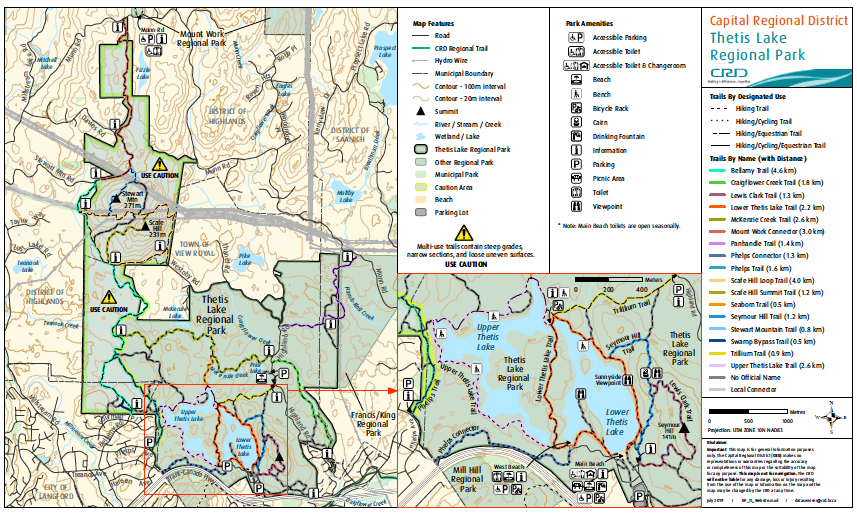People and their pets are advised to stay out of the water at Thetis Lake Regional Park due to a potentially toxic blue-green algae bloom, according to an advisory from the Capital Regional District and Island Health.
The blue-green algae visible on the surface of the lake can produce toxins — in this case cyanotoxins, which are produced by cyanobacteria.
Dog walkers should keep the animals on a leash to prevent them from swimming in or drinking the water until the advisory has been lifted, the CRD advises.
Ingesting water containing these cyanotoxins can cause a range of symptoms. While humans might suffer headaches, muscle aches and abdominal pain, dogs who ingest the toxins could suffer lethal liver damage.
“Cyanobacteria can produce several types of toxins that can be poisonous to people, pets or livestock,” adds HealthLinkBC. “Some can affect the nervous and respiratory systems. Symptoms are visible shortly after exposure. Others affect the liver and it takes days before symptoms appear.”
The advisory was originally posted on Nov. 4 and updated on Monday afternoon.
The province’s HealthLinkBC website says cyanobacteria can cause blooms in a range of colours, including bright blue, red, brown and green.
The cyanobacteria can be found in various bodies of water, but is more common in shallow, slow-moving or still water such as ponds, wetlands and shorelines of fresh-water lakes, streams and rivers.
When the amount of cyanobacteria increases to form a dense mass, a so-called bloom will form. While the current algae bloom is visible, not all blooms are easy to spot, yet toxins can still be present. Blooms are unpredictable and can occur at any time, said the CRD.
• For more information, go to crd.bc.ca/alerts.



